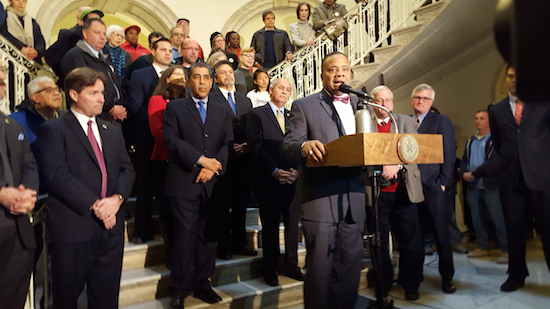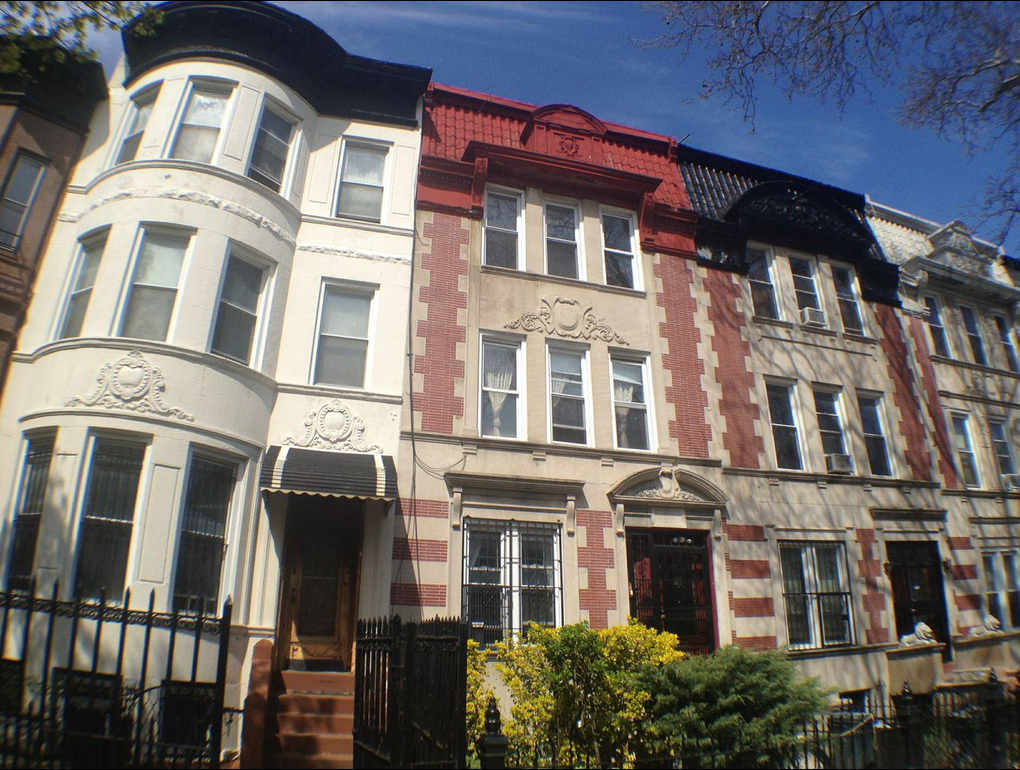Hamilton urges Congress to oppose Trans-Pacific Partnership
Says trade agreement would hurt economic development here

State Sen. Jesse Hamilton, speaking at City Hall, says the Trans-Pacific Partnership would pose a serious threat to New Yorkers. Photo courtesy of Hamilton’s office
On the surface, it wouldn’t seem as if the Pacific Rim has much to do with Brooklyn. But state Sen. Jesse Hamilton said that what is happening on the other side of the globe has a deep impact here.
Hamilton (D-Central Brooklyn) gathered a group of elected officials together to call on New York State’s congressional delegation to vote against ratifying the controversial Trans-Pacific Partnership (TPP).
Hamilton and 21 of his colleagues in government signed a letter to the New York delegation urging them to vote against the TPP. The signatories from Brooklyn included state Sens. Martin Dilan, Velmanette Montgomery, Kevin Parker and Daniel Squadron.
